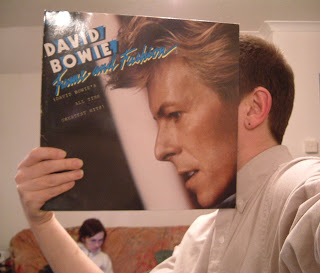
Eccentric - a word introduced into my vocabulary at a young age. When did it get into yours?
"The boy sometimes thinks in an eccentric way," my father commented to my mother. He was speaking in Arabic, but used the English word.
"Do you know what eccentric means?" he asked me, "It's when everyone expects you to think one way, and you choose another. Eccentric circles, unlike concentric circles, do not share the same centre."
Over the years, I got so used to the word, I would roll my eyes when my father rolled it out again. I did not take it seriously; nor did he mean it in an insulting way. He was slightly amused at the observation.
My father told me about his old friend, Ahmed N (another Ahmed!), who would take extreme care when crossing the road. "What if the tram's electric cables were to fall just at the time I was walking over the tram's rails?" the late Ahmed N told my father.
"Ya Ahmed ya N! Why would they fall at the time, of all times, that you, of all people, happen to be crossing the road!" my father said.
My mother teased: "You must have found too much fault in your friend, that God gave you a son like him."
"I never critised him, I used to feel sorry for his eccentric thinking," my father said.
Eccentric thoughts and behaviour continue to come out of me. A friend described my Connect-4 strategy as "assymetric". I bet that's in the thesaurus entry for "eccentric". If not, it should be - take it from me, an authority.
I think my impatience, my exaggerated sense of self, my arrogance and ambition is at the root of my eccentric thinking (if indeed I am an eccentric). Deep inside, I believe I will find a way, a different route that most others have missed - 'I am a law unto myself'. At least, that's what I used to be.

The Eccentric is an old English character; he is obsessed with a pointless hobby, such as stamp-collecting, or knowledge of the coral reefs of the Red Sea.
The Eccentric is typically male and single. (Uncle Ahmed N, may he rest in peace, died single.)
So, when did eccentric get into your vocabulary?
Want to read my future posts? Don't forget to subscribe

